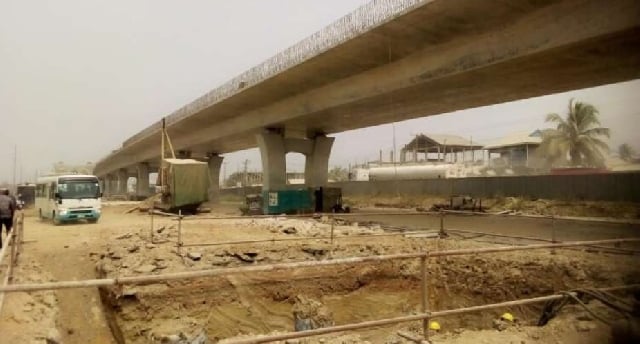The controversy surrounding Ghana’s National Cathedral project has reignited, fueled by revelations of substantial expenditures and a perceived lack of progress. Godwin Edudzi Tameklo, Director of Legal Affairs for the National Democratic Congress (NDC), has sharply criticized the ruling New Patriotic Party (NPP) for allocating $97 million to the project, characterizing it as a “most expensive hole” and a gross misallocation of public funds. His critique underscores a broader concern about the government’s prioritization of a grand religious edifice while critical infrastructure projects across the country remain neglected. This juxtaposition has resonated with many Ghanaians, particularly those grappling with the daily challenges posed by inadequate infrastructure.
Tameklo’s comments specifically highlight the stark contrast between the stalled cathedral and the unfinished Pokuase-Amasaman road project, a vital artery in Accra’s rapidly expanding periphery. The $97 million spent on the cathedral, he argues, could have been utilized to complete this crucial road project, alleviating chronic traffic congestion and significantly improving transportation in the area. This comparison serves as a potent symbol of the NPP’s perceived misplaced priorities, pitting a symbolic religious undertaking against the tangible needs of a growing urban population. The deteriorating state of the Pokuase-Amasaman road, a daily source of frustration for commuters, amplifies the sense of disconnect between the government’s spending and the pressing needs of its citizens.
The controversy surrounding the National Cathedral extends beyond its cost and lack of progress. It has become a lightning rod for broader criticisms of the NPP’s governance, particularly concerning transparency and accountability. The project’s opaque financial dealings have raised questions about the responsible stewardship of public resources and the potential for misappropriation. Tameklo’s accusations tap into this broader unease, framing the cathedral project not merely as an isolated instance of mismanagement but as a symptom of systemic flaws within the NPP’s approach to governance. The substantial sum spent on the project, while seemingly justifiable within a religious context, becomes a symbol of squandered opportunity when juxtaposed against the unmet infrastructure needs of the nation.
The public outcry over the National Cathedral reveals a growing discontent with the government’s priorities and its perceived disconnect from the realities faced by ordinary citizens. The project, initially envisioned as a national symbol of faith, has become a source of division and a focal point for criticism of the NPP’s management of public funds. The contrast between the resources poured into the cathedral and the neglect of essential infrastructure like the Pokuase-Amasaman road fuels public perception of a government prioritizing symbolic gestures over practical solutions to the daily challenges faced by its citizens.
The debate over the National Cathedral underscores the importance of aligning public spending with the needs and priorities of the populace. While the project may hold symbolic significance for some, the substantial investment involved raises questions about its cost-effectiveness and its impact on the overall well-being of the nation. The controversy also highlights the crucial role of transparency and accountability in public projects. The lack of clear information about the cathedral’s finances has fueled public skepticism and eroded trust in the government’s stewardship of public resources.
The National Cathedral project has become a symbol of the complexities and contradictions of governance in Ghana. While intended to represent national unity and faith, it has inadvertently exposed deep-seated concerns about resource allocation, transparency, and the government’s responsiveness to the needs of its citizens. The ongoing debate surrounding the project serves as a crucial reminder of the importance of aligning public spending with national priorities and ensuring accountability in the management of public funds. The controversy surrounding the cathedral is likely to continue to shape public discourse and influence perceptions of the NPP’s governance in the lead-up to future elections.


